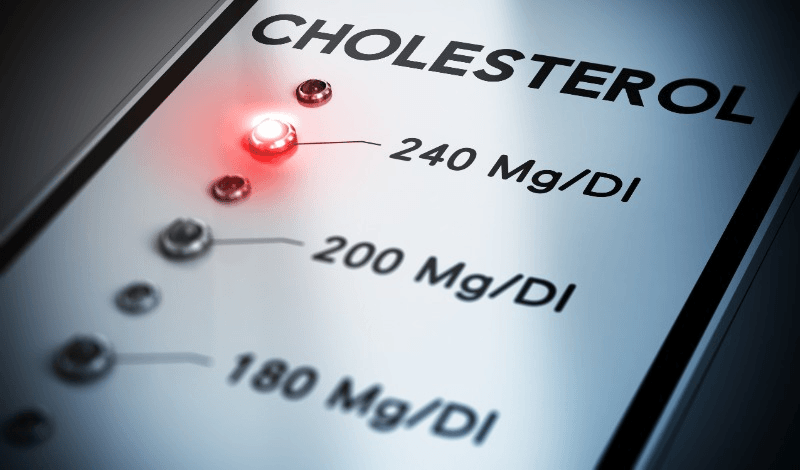Key Takeaways
-
Understanding the potential interactions between selenium and medications, such as blood thinners, chemotherapy drugs, cholesterol-lowering medications, birth control pills, immune system modulators, anti-inflammatory drugs, thyroid medications, and barbiturates, is crucial for individuals taking these medications.
-
Selenium interactions are an important part of vitamins you shouldn’t take together!
-
Consult with a healthcare professional before taking selenium supplements, especially if you are on any of the mentioned medications or vitamin supplementation, to ensure no adverse effects or interactions.
-
Be proactive in discussing your antioxidant supplement use and potential drug interactions with your healthcare provider to avoid any negative impacts on the effectiveness of your medications.
-
It is essential to stay informed about the potential interactions between selenium, various medications, and dietary supplements to make well-informed decisions about your supplement intake.
-
By being aware of the possible interactions, individuals can take proactive steps to manage their health effectively and minimize any risks associated with combining selenium supplements and medications.
-
Always prioritize open communication with your healthcare provider to address any concerns or questions regarding the use of selenium, selenite, drug interactions, and dietary supplements alongside specific medications.
1. Blood thinners (Anticoagulants)
When taking anticoagulants like warfarin, it’s crucial to be mindful of selenium intake due to potential interactions that can affect the effectiveness of the blood thinner. Selenium is an essential mineral with antioxidant properties, but high selenium levels may interfere with the blood-thinning effects of medications like warfarin.
Monitoring selenium levels becomes especially important for individuals on anticoagulant therapy to prevent adverse outcomes related to irregular blood clotting. Discussing any plans for selenium supplementation with a healthcare provider is advisable, as they can provide guidance tailored to individual health needs and medication regimens.
Incorporating foods rich in selenium, vitamins, and zinc into one’s diet while being cautious not to exceed recommended daily allowances can help maintain balanced levels without interfering with anticoagulant therapy. This approach also aligns with primary prevention measures against conditions such as ischemic stroke and heart disease.
For hemodialysis patients or those with underlying health conditions such as diabetes, understanding how their bodies metabolize antioxidants like selenium and vitamins is particularly relevant. Prospective randomized trials have shown that antioxidant vitamins might not always yield anticipated benefits in ill patients; hence, close monitoring of both blood levels and dietary intake remains critical.
2. Chemotherapy drugs
Selenium supplements might interfere with the efficacy of certain chemotherapy medications. Research has shown that high doses of selenium, an antioxidant supplementation, can potentially reduce the effectiveness of some chemotherapy drugs, impacting their ability to target and destroy cancer cells.
Consult your oncologist before using selenium supplements or antioxidant supplementation alongside chemotherapy drugs for cancer patients. It is crucial for cancer patients undergoing chemotherapy treatment to seek professional medical advice regarding the use of selenium supplements and antioxidant supplementation. Oncologists can provide personalized recommendations based on individual health conditions, specific cancer treatments, and clinical effects.
Be cautious about selenium intake if undergoing chemotherapy treatment. While selenium is an essential mineral known for its potential role in cancer prevention, its interaction with chemotherapy drugs and antioxidant supplementation requires careful consideration. Patients should prioritize open communication with their healthcare providers to ensure safe and effective management of their overall treatment plan.
3. Cholesterol-lowering medications (Statins)

Selenium could impact the metabolism and antioxidant effects of statins in the body. Studies have suggested that selenium, an antioxidant, may interfere with the effects of statin medications, which are commonly prescribed to manage cholesterol levels and reduce the risk of heart disease.
Patients on statin medication should consult a healthcare professional before considering selenium supplementation and nutrient supplementation. Your doctor can provide personalized advice based on your health status, patients, and any other medications you may be taking.
Keeping your healthcare provider informed about your selenium consumption and vitamin intake is essential if you’re prescribed statins. This ensures that patients can monitor for any potential interactions or adjustments needed to optimize the effectiveness of your treatment plan.
4. Birth control pills
Selenium, a vital mineral and antioxidant, can impact hormone metabolism in birth control pills. It’s crucial for women using oral contraceptives to engage in open discussions about selenium supplementation with their gynecologists. This proactive approach helps to ensure that any potential interactions between selenium and birth control pills are carefully monitored.
Research has shown that selenium, a vitamin and antioxidant, plays a role in hormone regulation within the body, which could affect how the hormones in birth control pills are metabolized. Therefore, being aware of the controlled effects of oral contraceptives is essential for women who rely on them for prevention.
5. Immune system modulators
Selenium, an essential micronutrient and antioxidant, can influence the effects of immune system-modulating drugs such as interferons. It plays a crucial role in supporting immune function and acts as an antioxidant supplement by increasing the activity of enzymes like glutathione peroxidase and superoxide dismutase.
Before considering selenium supplementation, patients must consult with their immunologist or healthcare professional. This precautionary step becomes particularly important if you already utilize immune system modulators and antioxidants to manage conditions like autoimmune diseases or chronic infections.
Monitoring your selenium intake is vital when using immune system modulators and antioxidants. Excessive selenium levels can lead to selenosis, which manifests in symptoms such as gastrointestinal disturbances and hair loss. Conversely, inadequate selenium levels may compromise immune function and overall health.
Incorporating dietary sources of selenium, such as Brazil nuts, fish, poultry, eggs, and whole grains, into your meals can effectively maintain optimal levels without relying solely on supplements.
6. Anti-inflammatory drugs (Corticosteroids)

Selenium, an antioxidant, may interact with corticosteroid medications, potentially affecting their effects. This interaction is particularly relevant for patients managing conditions such as rheumatoid arthritis or asthma, where corticosteroids are commonly prescribed.
Consult your physician: If you are taking corticosteroids and considering selenium supplementation, it is crucial to consult your healthcare provider. They can provide personalized guidance based on patients’ medical history and the potential risks of combining these substances.
Potential implications: Combining selenium with corticosteroid medications requires caution due to the potential for adverse effects or reduced effectiveness of either treatment. Patients undergoing corticosteroid therapy should know possible interactions and make informed decisions regarding supplementation, including antioxidant selenium.
7. Thyroid medications
Selenium plays a crucial role in thyroid function and may impact the effectiveness of thyroid medications. Research suggests that selenium deficiency, an antioxidant, can lead to alterations in thyroid hormone levels and contribute to autoimmune thyroiditis.
Patients must consult their healthcare provider before considering selenium supplements, especially if they already take thyroid medications. Excessive selenium intake could interfere with the absorption of these medications or even affect their potency.
Regular communication with your doctor regarding your selenium intake and the usage of thyroid medications is vital for maintaining optimal thyroid function and controlled effect. Patients can monitor their blood selenium levels and make necessary adjustments to ensure their medication remains effective while addressing potential deficiencies.
8. Barbiturates (sedatives)
Selenium could potentially interact with barbiturates, altering their effectiveness. This interaction may impact the potency of sedative medications, leading to unexpected effects in individuals using both selenium supplements and barbiturates. It’s crucial for med patients using sedatives to seek advice from a healthcare professional before introducing selenium into their regimen.
Frequently Asked Questions
Can Selenium Interact with Blood Thinners (Anticoagulants)?
Yes, selenium can interact with blood thinners like warfarin. Selenium supplements may enhance the effects of anticoagulants, potentially increasing the risk of bleeding. Cancer patients must consult a healthcare professional before taking selenium supplements if they are on blood thinners.
Are There Interactions Between Selenium and Chemotherapy Drugs?
Selenium may interfere with certain chemotherapy drugs, affecting their effectiveness. Patients undergoing cancer chemotherapy should seek guidance from their healthcare provider before using selenium supplements to avoid potential interactions.
How Does Selenium Interact with Cholesterol-lowering Medications (Statins)?
Selenium might reduce the efficacy of statins by interfering with their metabolism or activity in the body. Individuals taking statins should discuss the use of selenium supplements with their healthcare provider to ensure there are no adverse interactions.
Is There an Interaction Between Selenium and Birth Control Pills?
There is limited evidence suggesting that selenium could potentially reduce the effectiveness of birth control pills. It’s advisable for patients using oral contraceptives to seek medical advice before incorporating selenium supplements into their routine.
What Are the Potential Interactions Between Selenium and Immune System Modulators?
Due to its immunomodulatory properties, selenium supplementation may impact cancer patients’ immune system function or effectiveness. Patients utilizing immune system modulators should consult a healthcare professional before adding selenium supplements.

